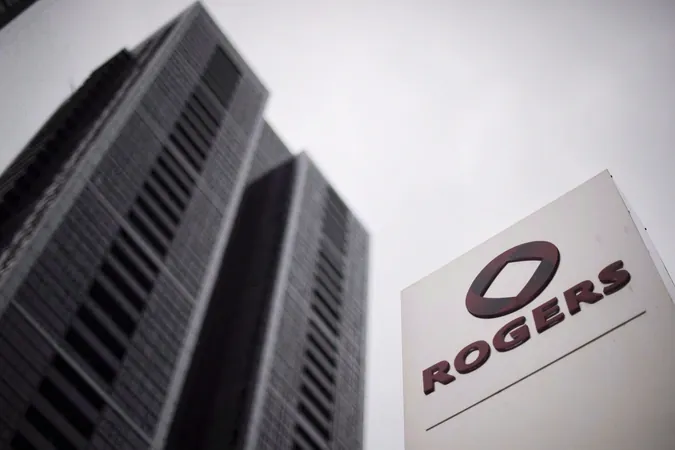
2025 Telecom Turbulence: Bank of America Downgrades BCE and Rogers Amid Industry Squeeze
2025-01-14
Author: Olivia
In a recent analysis, Bank of America Securities (BoA) has issued a stark warning regarding the future of Canadian telecommunications, forecasting a challenging 2025 for the sector. Analyst David Barden pointed out that after emerging from a “tough” 2024, telecom companies are likely to face mounting pressures as competition intensifies across both wireless and wireline markets.
Barden highlighted that while robust subscriber growth has been witnessed, falling prices have consequently counterbalanced that growth, primarily due to escalating competition as the industry adapts to the presence of a newly consolidated fourth provider. This adjustment has triggered a struggle for market share, particularly as firms grapple with absorbing shocks related to pricing and volume over the coming year.
A significant factor influencing this downward trend is the Canadian government’s recent adjustments to immigration policy. Barden emphasized that changes aimed at reducing nonpermanent residents from 7.1% to 5% by 2026 could spell trouble for wireless providers. With many nonpermanent residents likely relying on wireless services, this could lead to increased churn and reduced net subscriber additions for companies like Rogers, which holds a leading market position among new Canadians.
Reflecting these anticipated difficulties, Barden has downgraded BCE Inc. (BCE), lowering its rating from “neutral” to “underperform” with a new price target set at C$36, down from C$45. He noted that BCE is particularly vulnerable, facing high leverage and a dividend payout exceeding 120% of projected free cash flow for 2024. Without a clear plan from BCE to stabilize its balance sheet and manage dividend concerns, Barden expects the company to underperform its competitors.
Rogers Communications Inc. also saw its rating shift from “buy” to “neutral,” with its target price dropping from $65 to $55. The downgrade reflects Rogers' heightened vulnerability to reduced immigration levels, uncertainties related to investments in sports assets, and increasing leverage—a combination that could pressure the company’s profitability and market position.
In contrast, Barden identified Telus Corp. as his top pick in the telecommunications space for 2025, maintaining a “buy” rating with a target price of C$24. He sees Telus poised for strong free cash flow generation as it capitalizes on its fiber network expansion and real estate monetization efforts.
The downgrades of prominent industry players like BCE and Rogers underscore a growing skepticism about the future profitability of Canada’s telecom sector in light of competitive pressures and regulatory changes. Investors looking at this sector will likely remain cautious as they wait to see how companies will navigate these challenges.
As the telecom landscape evolves, the implications for investors and consumers alike could be significant, raising questions about service quality and pricing strategies in a post-2024 market. Stay tuned to see how these developments unfold in the coming months!









 Brasil (PT)
Brasil (PT)
 Canada (EN)
Canada (EN)
 Chile (ES)
Chile (ES)
 Česko (CS)
Česko (CS)
 대한민국 (KO)
대한민국 (KO)
 España (ES)
España (ES)
 France (FR)
France (FR)
 Hong Kong (EN)
Hong Kong (EN)
 Italia (IT)
Italia (IT)
 日本 (JA)
日本 (JA)
 Magyarország (HU)
Magyarország (HU)
 Norge (NO)
Norge (NO)
 Polska (PL)
Polska (PL)
 Schweiz (DE)
Schweiz (DE)
 Singapore (EN)
Singapore (EN)
 Sverige (SV)
Sverige (SV)
 Suomi (FI)
Suomi (FI)
 Türkiye (TR)
Türkiye (TR)